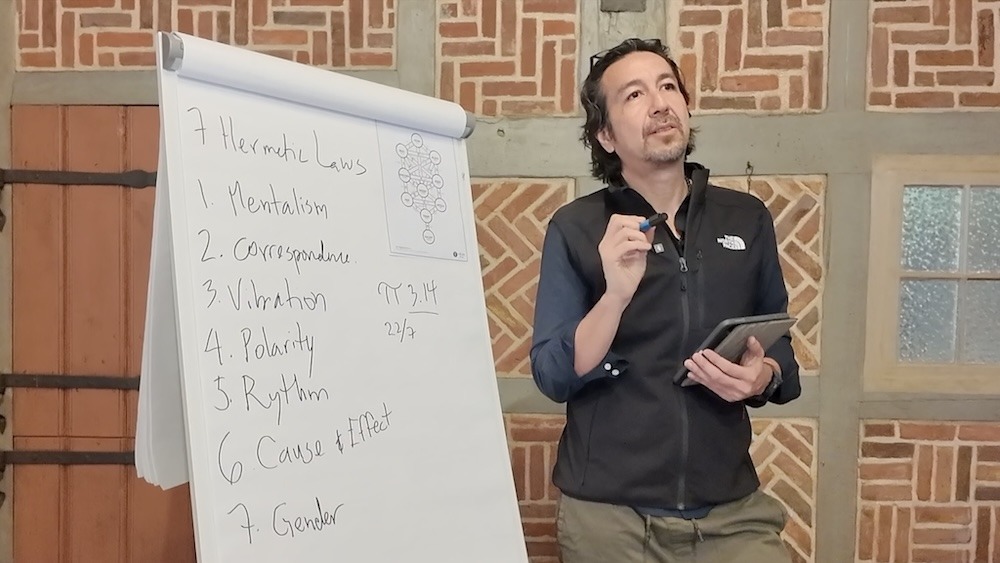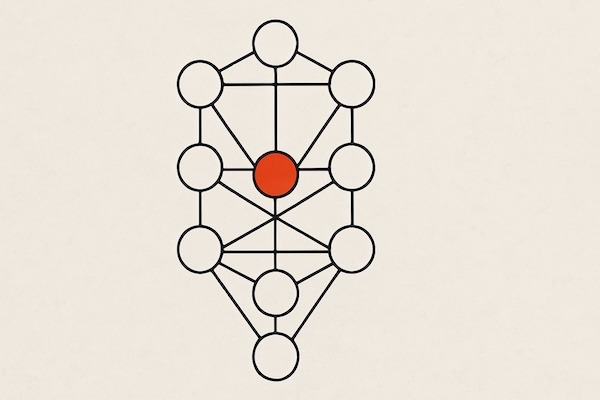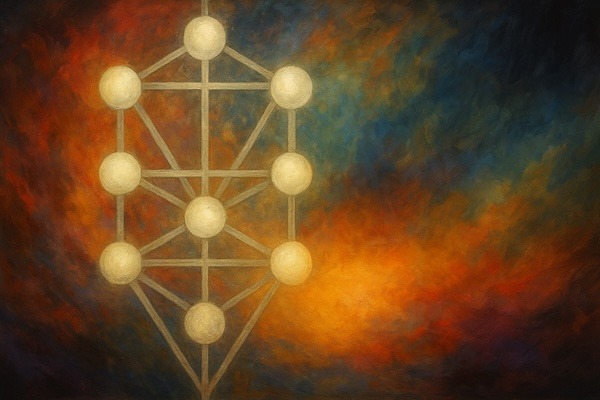The intersection of science fiction and psychology offers rich narratives that delve into the depths of human consciousness and existence. Apple TV+’s 2024 series “Dark Matter” weaves scientific principles from quantum mechanics to explore human identity, choice, and reality. This article examines how “Dark Matter” uses concepts from quantum mechanics to depict the intricacies of human consciousness and the profound impact of our decisions.
What the series is about
The series “Dark Matter” based on the 2016 novel by Blake Crouch follows the story of Jason Dessen, a physicist, professor, and family man who is abducted into an alternate version of his own life. As Jason navigates these parallel realities, he encounters different versions of himself and his loved ones, each shaped by the various paths his life could have taken. His journey to return to his original reality is fraught with challenges, forcing him to confront the very essence of his identity and the consequences of his choices. This narrative framework provides a compelling backdrop for exploring complex psychological and existential themes.
Quantum Mechanics and the existential dilemma of Identity
“Dark Matter” leverages the principles of quantum mechanics to explore the profound existential dilemma of identity, illustrating how the multitude of possible realities challenges our understanding of self and what it means to be truly authentic.
To understand the profound impact of quantum mechanics on the existential dilemma of identity, we must delve into several key quantum principles. Following are some that not only challenge our conventional understanding of reality but also offer a unique lens through which to examine the multifaceted nature of human consciousness and self-perception.
Quantum Mechanics and Multiverse Theory
At the heart of “Dark Matter” lies the concept of the multiverse, a theoretical framework in quantum mechanics suggesting that every decision spawns multiple parallel universes. Each universe represents a different outcome based on the choices made. The protagonist, Jason Dessen, experiences these alternate realities firsthand, encountering different versions of himself that reflect the myriad paths his life could have taken.
This idea of superposition, where a particle can exist in multiple states simultaneously until observed, parallels the multiple versions of Jason. The narrative effectively uses superposition to illustrate that human consciousness is not singular or static but rather a dynamic, evolving state influenced by myriad potential experiences and decisions.
The Observer Effect and Consciousness
The observer effect in quantum mechanics, which states that the act of observation alters the observed phenomenon, is mirrored in Jason’s journey. As he navigates different realities, his presence and actions invariably change the outcomes in each world. This highlights the active role of consciousness in shaping reality, reinforcing the idea that our perceptions and interactions are not passive but dynamic forces in our existence.
“Dark Matter” uses this principle to suggest that human consciousness is not a static entity but a fluid construct influenced by our experiences and interactions. This aligns with modern psychological theories that view consciousness as a product of both internal and external stimuli, constantly evolving based on our engagement with the world.
This interplay between observation and existence suggests a deeper philosophical inquiry into how our awareness and perceptions shape our lives. By highlighting the observer effect, “Dark Matter” challenges viewers to consider how their consciousness and decisions continually mold their reality.
Duality and Identity: The Psychological Struggle
Joel Edgerton’s portrayal of Jason Dessen across multiple realities underscores the duality within a single identity. The series juxtaposes the “family Jason” with the “career Jason,” each shaped by different life choices. This duality explores the psychological conflict between personal desires and responsibilities, and the reconciliation of different facets of one’s identity.
By presenting characters with multiple, often conflicting versions of themselves, “Dark Matter” delves into the existential question of what truly defines us. Is it our memories, our choices, or an inherent essence? This exploration mirrors psychological inquiries into the nature of self, suggesting that identity is a complex interplay of various influences and decisions.
The Search for Meaning
Jason’s journey through alternate realities is also a metaphor for the human search for meaning. As he navigates the multiverse, he confronts existential questions about his purpose and the consequences of his choices. This quest reflects the broader human experience of seeking understanding and purpose in a complex, often unpredictable world.
Beyond the scientific and psychological, “Dark Matter” engages with profound philosophical questions about existence and meaning. The multiverse serves as a metaphor for the infinite possibilities and the weight of our choices. The series poses existential dilemmas, asking viewers to consider the nature of reality and the essence of being.
Jason’s quest to return to his “true” reality and save his family becomes a journey of self-discovery, reflecting the human quest for meaning and purpose. This aligns with existential psychology, which explores how individuals find meaning in a seemingly indifferent universe.
Psychological Resilience and Adaptation
“Dark Matter” also highlights psychological resilience as Jason adapts to the drastically different worlds he encounters. His ability to navigate these realities speaks to the resilience required to maintain a coherent sense of self amid constant change and uncertainty. This theme resonates with psychological theories of resilience, emphasizing the capacity to adapt and thrive in the face of adversity.
Conclusion
“Dark Matter” exemplifies how science fiction can be a powerful medium for exploring the complexities of human consciousness and existence. By weaving together quantum mechanics, psychological duality, and philosophical inquiries, the series provides a rich narrative that resonates with the core themes of Transcendent Psychology.
At Transcendent Psychology, we explore the depths of human consciousness, identity, and the myriad influences that shape our existence. “Dark Matter” serves as a compelling case study, illustrating how scientific principles can illuminate the intricate tapestry of the human mind. By examining such narratives, we can gain deeper insights into the nature of reality, the power of choice, and the essence of what it means to be human.







